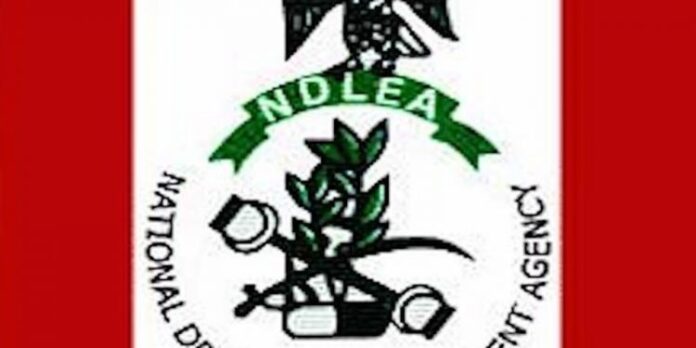By Emma Ogbuehi
The Senate has commenced an amendment to the National Drug Law Enforcement Agency Act 2004 with a view to close the loopholes in the drug law.
The move began in earnest on Tuesday with the consideration of the National Drug Law Enforcement Agency Act 2004 (Amendment) Bill, 2021, presently before the National Assembly.
The bill which scaled Second reading, according to its sponsor, Senator Dinka Hezekiah Ayuba (APC – Plateau Central), seeks consistent sentencing for convicted offenders, and “to put a stop to the illegalities being perpetrated by certain Federal High Court Judges by closing the loophole in the Law.”
Leading debate on the bill, the lawmaker said, “The National Drug Law Enforcement Agency Act Cap. N 30 Laws of the Federation of Nigeria, 2004 provides for stringent penalties for persons involved in the importation and exportation of hard drugs such as cocaine or heroin. These penalties range from life imprisonment to 15 years which is the minimum penalty.
“A gramme of cocaine sells for over N4 million naira in the market. In spite of the fact that the Supreme Court in the case of Odeh V Federal Republic of Nigeria (2008) 3-4 Supreme Court Cases page 147 has held that the minimum penalty for those dealing in such hard drugs is a term 15 years, for some unknown reasons, some judges of the Federal High Court have continued to pass ridiculously light and illegal sentences on those convicted.
He observed that rather than a term of imprisonment of 15 years, the maximum sentence passed on any convict was a term of 3 years for heroin, adding, “Some of these have been as low as 4 months imprisonment for 1.44Kgs of cocaine.
The senator frowned that even when some of the Judges pass these light terms of imprisonment, the convicts are further given options of fines which are not provided for under the NDLEA Act. The options of fine have in some instances, ranged from N150, 000 to N 500,000.
“Where a person caught with cocaine worth N4million is given an option, to pay a fine of N200,000 as was done in one case, what signals is the Country sending to the drug Barons, their Couriers, our youths and the International Communities?”, he asked
He stressed that because these penalties have been decided by some judges based solely on their arbitrary rather than the law, there has not been consistency in the sentence passed on the various convicts with regard to the quantity of Hard Drugs found on them.
“For instance, one person found with 844gms of cocaine was given a term of 2years imprisonment while another person found with 2.2g of cocaine was given a term of 11 months imprisonment with an option of N500,000 fine.
“Again, another person found with 160grammes of cocaine was sentence to 18 months imprisonment with an Option of N500,000 fine, while a convict found with 4.8kg of cocaine was given a term of imprisonment of 8 months.
“The arbitrariness that is being perpetrated by the trial judges by not following the provisions of the NDLEA Act clearly can lead to corrupt practices and encouragement of the drug trade”, the senator remarked.
He attributed the increase in drug trafficking activities in the country to a consequence of illegal and light sentences by trial Judges of the Federal High Court.
“Mr. President, my Distinguished Colleagues, you may have noticed that there has been a phenomenal increase in the number of drug couriers apprehended at our Airports, this is a direct consequence of these illegal sentences invented by some judges,” he said.
According to Ayuba, the rather expensive and rigorous process for the NDLEA to appeal such cases of illegality may take a long time – somewhere between waiting for seven (7) to ten (10) years for final adjudication.
The lawmaker added that, “the proposed amendment to the NDLEA Act will close any loophole by having a clear, unambiguous and unequivocal provision that Judges cannot vary the sentences provided by the Act by reducing the penalties or giving options of fines which the NDLEA Act has not provided for.
“The urgency of the proposed amendment is underscored by the fact that within the first eight (8) months of last year, 94 cases fell within this category.
“As the news of these light sentences spread, more people are encouraged to go into the drug trade, hence the phenomenal rise in the number of person apprehended at our airports, and the continued damage to the lives of our youths and our images in the international Community.”
On other aspects of amendments to the Act, he said, “there is equally a minor but significant error in the principal Act. The word “heroine”. The two words mean different things and are not synonymous.
“An amendment is therefore being proposed to change the word ”heroine” which means a girl or woman who does something brave or good to ”heroin” which means a powerful illegal drug made from morphine which is intended in the Act.
“The last amendment being sought concerns the penalty for obstructing the Agency or authorized officer of the Agency in the exercise of any of the powers conferred on the Agency. The principal Act imposes a term of imprisonment not exceeding five years or to a fine of N 20,000 or both.
“The amendment is seeking to increase the option of fine from N 20,000 to N 100,000 because the economic reality in Nigeria today has rendered the N 20,000 fine, paltry and unrealistic.”
The Senate President, Ahmad Lawan, thereafter, referred the bill for further legislative work to the Committee on Drugs and Narcotics. The Committee is expected to submit its report in two weeks during plenary.















